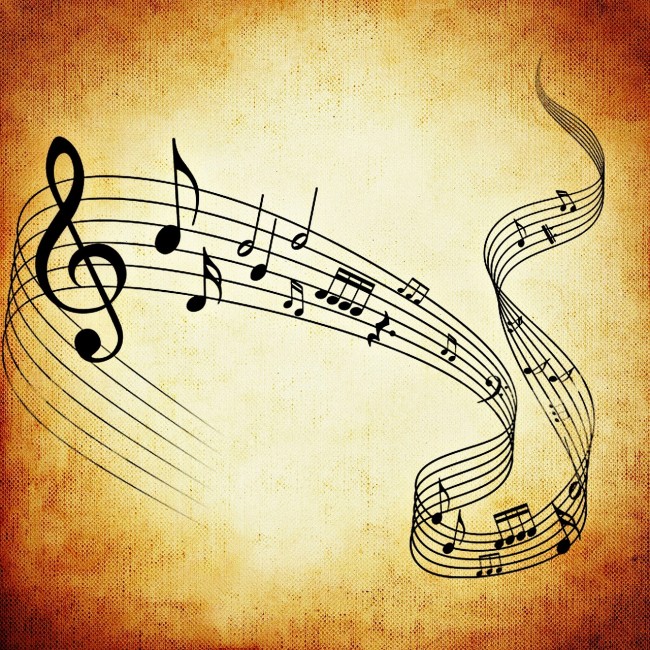Our ancients placed immense faith in the healing power of music to cure illness — much more than healing herbs. Picture this — the healing customs of ancient Hindus, Chinese, Persians, Egyptians, and Greeks, through music — for illnesses, big and small. Or, recall a musical context from Homer’s classics, The Iliad and The Odyssey. Homer celebrates a melodic case in point where the spread of plague is halted by sacred hymns, just as much as Odysseus’s wounded knee is healed by the ‘chanting of lays’.
The divine manifestation of sound, the essence of music, has been, likewise, equated with light for ages. However this might be, one important fact remains: Our spirit is created not by light, but by sound. Hence, the vintage expression, ‘In the beginning was the word’ — or, sound in the form of divine speech. Divine sound, as you know, is the cause of all manifestation — a tremendous power. Great seers and musicians have always evidenced that sound is god’s power — in other words, Náda Brahma, the divine sound that reverberates throughout the universe.
This explains why we have been traditionally taught that sound is god, what with music being the spiritual discipline that raises one’s inner self to divine bliss. The power of sound, or mantra — the divine expression, Om, for example, has, therefore, been given a special pride of place in everyday life. The word, Om, exemplifies a profoundly divine spiritual strength.
While the legendary Greek philosopher-mathematician Pythagoras observed that good music was associated with the rhythms of life, the great medieval physician Paracelsus used the metaphor ‘musical medicine’ to deal with specific anomalies. This, of course, preceded the idea of minstrels playing music for patients in convalescence, speeding their recovery. To cull another ancient example: Hippocrates, the father of medicine, often took his mental patients to the Temple of Asclepius, to make them listen to healing music — the ringing of bells.
Fast-forward to the times we now live in. Got a tension headache? Don’t pop a pill. Just reach out to music. Your favorite tune, or melody. Research suggests that when you ‘tap’ into your much-loved music piece, you ‘will’ yourself to relax and ‘rip’ your headache buzz. Or, do you suffer from asthmatic distress? Just ease your respiratory spasm with music. It works.
In an age replete with a host of pricey treatment options, music emerges as the most original, non-invasive and safe healing alternative. It also comes at no big cost — more importantly, without side-effects. It has proven effective through centuries of use, aside from validated modern clinical studies. What’s more, all of us seem to savor melodies far better than bitter, or ‘hard’, medicine — including sugar pills. Studies testify that music helps the sick cope better with the severity and intensity of their illness. It also aids us to deal effectively with the bad, after-effects of illness at the individual, family, workplace and financial levels, and fight fear, anxiety, or depression, while remaining socially active.
New studies extol the impact music has on our well-being. Music eases our pulse rate; it reduces our gloom. It helps us achieve a relaxed, meditative state of body, mind, and spirit. It provides emotional comfort; it regulates our hormones and heartbeat. It improves our imagery, or visualization, skills.
All of us have an ear for music — the reason being hearing is the first sense that develops fully within 140 days after conception. It is also the last to be naturally lost. Put simply, you’d use music to boost your health and well-being — from the womb to your last gulp of air.
There is also more than an element of physics in the melodious chemistry of music. The universe, for instance, is built on the eternal cadence of harmonies. It was again Pythagoras who pioneered the idea that seamlessly connected mathematics, music and the cosmos. His précis was fundamental, simple, and yet profound — he formulated mathematical patterns that lie beneath musical scales and intervals that are most pleasant to the ear and also the mind. No prizes for guessing. His musical doctrine articulates the core of quantum theory — probability waves.
This was not all. Pythagoras applied his discoveries in music theory to the behavior of celestial objects. He illustrated the intervals between successive orbits, for example of Mercury and Venus, as either tones or half-tones — in other words, the smallest intervals in the musical scale — adding up to seven whole tones that form a flawlessly pleasant-sounding natural order. To pick an exemplar — when you pluck a guitar string, the pitch of the note it produces is related to the length of the string. Likewise, when the lengths of two strings are a simple ratio, such as 1:2, 2:3, and so on, the notes in sync sound pleasant and harmonious. That Pythagoras visualized the universe itself pulsated with its own symphony orchestra was yet another roseate testimony of his genius. He believed such melodies were divine and beautiful, yet far too muffled for the human ear.
Closer to our century, the French physicist Louis de Broglie proposed the wave patterns of electrons and other matter particles — his sonorous view gels well with musical harmonics that he, perforce, had in his mind. De Broglie’s paradigm relates no less to how different energy levels of Niels Bohr’s atomic model emerged by way of electrons as ‘standing’ natural waves of various frequencies. The whole interpretation epitomizes the essence of the wave theory of light to material particles. Put simply, the idea also corresponds to a string in the veena, for instance, that can be plucked in certain ways to produce particular sounds, just as the electrons in de Broglie’s ‘format’ are influenced to oscillate in particular patterns analogous to certain frequencies and energy levels.
A talent, or feel, for music, as research suggests, is not just hearing from your inner ear. It has to it something more than music in your mind. Besides, music’s impact on your mind and body begins with the physiological process of hearing. Observes Elizabeth Miles, an ethnomusicologist, “The ear is the first sensory organ to develop in the womb, preceding even the nervous system — so sound is your first source of information about the world.” She adds, “Once you’re born, the primary function of the auditory system is orientation and self-defense. (Because) your entire hearing apparatus is designed to detect, locate and identify sound, and then integrate these signals into propulsive behavior for self-preservation — for instance, fleeing from the woolly mammoth you hear charging from the rear.” Her scientific conclusion, “From an evolutionary standpoint, hearing is life itself, and as such, we were given a sophisticated system for processing sound in the brain, body, and nervous system.”
Studies have demonstrated the mind-altering power of music — an all-natural substitute for directing your moods, and making more of your life. Research, as a matter of fact, is more than convinced about the power of sonic energy — a tuneful tool that impacts your moods and motivation, including your own or your child’s success. It is evidenced, no less, that one can, with immense advantage, use music as a mood-enhancement tool, with the right soundtrack — a sort of therapeutic adjuvant that can help you beat anxiety, enhance your or your child’s creativity, or IQ, control pain, get enthused and have a fulfilling conjugal life.
Research details that orchestra conductors live nearly 30-35 per cent longer than the general population. It’s also suggested they stay well, thanks to music and its therapeutic effects. To illustrate a concept in point: when healthy individuals listen to 20-25 minutes of music, their immune cells function with improved gusto — there is a bond established between music and the vitality of your immune system. In a lab experiment, to highlight the effect, a Johann Strauss waltz and a sitar recital by Pandit Ravi Shankar lowered blood levels of the stress chemical, cortisol, by 30 per cent.

Music bolsters the production of antibodies too — it makes you feel healthy, composed, upbeat and energized.
Music is suggested to keep us well by ‘entraining’ our biorhythms. When your biorhythms get out of ‘tune’ with your daily agenda, it affects your entire being. It also puts your immunity on high alert — or, stress. When you let music ‘beat’ in your ear, it helps your biorhythms to regulate and also ‘fix’ your daily plans and activities. Music bolsters the production of antibodies too — it makes you feel healthy, composed, upbeat and energized.
A study reveals that patients following heart attack decreased their heart and respiratory rates, including anxiety levels, by listening to soft, soulful music — with less than 60 beats per minute. Likewise, patients in intensive care units (ICU), showed a significant drop in their blood pressure levels. They also augmented their emotional status reviews more than fellow patients who did not listen to music.
For most of us, just the thought of — not actually visiting — the hospital means getting ‘under the weather’ and feeling dull. Clinicians suggest that sudden, sharp, or needless, clatter in a hospital situation is damaging; while soft, melodious music is beneficial during visits, confinement, and convalescence. The reason is simple. Noise essentially increases blood levels of the stress hormone, adrenaline, and cortisol, too. The outcome is often prolonged despair, inflammation, or infection. This is also a major impediment to our healing processes and normal immune function.
New research suggests that some of the networks in the human brain seem to be exclusively dedicated to music. This, in more ways than one, has prompted neuroscientists to rethink their ideas on the nature of intelligence. To consider a commonplace example: listening to your favorite tune can help you work with words, do maths and make a better effort at the job interview, the workplace, in sports, and can ease boredom, too. Creative individuals and sporting greats, as you’d know, often use music to relax, and get into the rhythm of things out there in the middle.
It is a simple equation. Listening to our favorite melodies puts us back on our feet, following immobility. It stimulates our nervous system like no other. Musical notes reportedly send electric signals to your muscles, even before you begin to move. They also ‘fine-tune’ your sense of co-ordination and ambulatory skills, that you’d have, perforce, lost during a protracted illness.
Music soothes your aches and pain syndromes too. It takes your mind off the twinge — as you stay ‘afloat’ with a violin piece, or Shankar-Jaikishan’s raga jazz-style, or hum your special song. Listening to music helps distract patients from unease while waiting in the doctor’s office, or going through a dental procedure — or, kidney dialysis. Therapists aver that when you choose your own pain-fighting music, you take control of intimidating or unsympathetic situations, and also the environment.
Music, according to mind-body physicians and therapists, is nothing short of magnetic resonance imaging (MRI). It allows sound frequencies to balance resonant energies in your heart, lungs, nervous system, muscles, organs, tissues, cells, your mind, thoughts, and also feelings. You get the point. The next time you listen to music, try to scan the tangible and intangible workings in your mind and body. You’ll not only quickly feel ‘in sync’ with your entire being, but you’ll also feel well, and melodiously, or vibrantly, transformed.
Photo Credit
Photo 1 – tOrangeeus – Creative Commons
Photo 2 – Pixabay – Public Domain
This article was first published in Financial Chronicle.
It is reprinted here with full permission of the publisher. © Financial Chronicle.



Many thanks for your comment; much appreciated. Will read the book that you have so kindly recommended. Thanks, again.